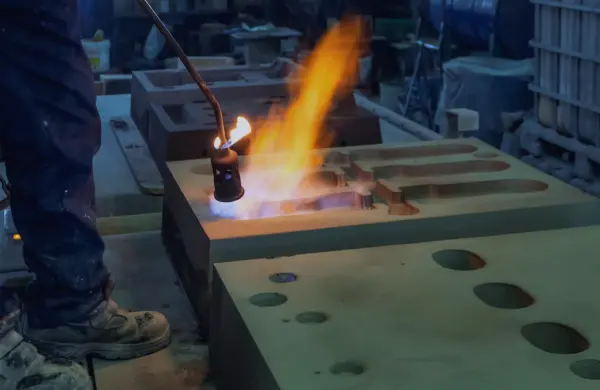All about Alcast Company
All about Alcast Company
Blog Article
The Basic Principles Of Alcast Company
Table of ContentsThe Ultimate Guide To Alcast CompanyThe Buzz on Alcast CompanyThe 9-Minute Rule for Alcast CompanyThe Definitive Guide to Alcast CompanyAlcast Company Fundamentals ExplainedThe Facts About Alcast Company Revealed
Chemical Contrast of Cast Light weight aluminum Alloys Silicon promotes castability by reducing the alloy's melting temperature level and boosting fluidity during casting. Furthermore, silicon adds to the alloy's stamina and use resistance, making it useful in applications where longevity is crucial, such as auto parts and engine components.It additionally enhances the machinability of the alloy, making it simpler to refine into finished items. In this means, iron contributes to the general workability of light weight aluminum alloys.
Manganese adds to the strength of light weight aluminum alloys and enhances workability. Magnesium is a light-weight aspect that supplies stamina and effect resistance to aluminum alloys.
Alcast Company - Truths
Zinc boosts the castability of light weight aluminum alloys and aids regulate the solidification process throughout casting. It enhances the alloy's toughness and firmness.

The main thermal conductivity, tensile strength, yield toughness, and prolongation differ. Select appropriate basic materials according to the performance of the target item generated. Among the above alloys, A356 has the greatest thermal conductivity, and A380 and ADC12 have the most affordable. The tensile limit is the opposite. A360 has the most effective yield strength and the highest possible prolongation price.
9 Simple Techniques For Alcast Company

In accuracy spreading, 6063 is well-suited for applications where intricate geometries and high-grade surface area coatings are paramount. Examples include telecommunication rooms, where the alloy's superior formability enables streamlined and aesthetically pleasing designs while preserving architectural stability. Similarly, in the Lighting Solutions market, precision-cast 6063 components develop stylish and efficient illumination fixtures that call for elaborate shapes and excellent thermal performance.
It brings about a finer surface area finish and much better rust resistance in A360. Furthermore, the A360 displays exceptional elongation, making it perfect for complicated and thin-walled elements. In precision casting applications, A360 is fit for sectors such as Customer Electronic Devices, Telecommunication, and Power Devices. Its enhanced fluidness allows for detailed, high-precision elements like mobile phone cases and interaction gadget housings.
Alcast Company for Beginners
Its special residential properties make A360 a beneficial choice for precision casting in these industries, boosting item longevity and high quality. Aluminum alloy 380, or A380, is a widely utilized casting alloy with numerous unique attributes. It provides outstanding castability, making it a suitable choice for accuracy casting. A380 exhibits good fluidness when molten, making certain intricate and in-depth mold and mildews are accurately recreated.
In precision spreading, aluminum 413 shines in the Customer Electronics and Power Equipment sectors. This alloy's remarkable corrosion resistance makes it an exceptional choice for exterior applications, making certain resilient, durable products in the stated markets.
All about Alcast Company
As soon as you have determined that the aluminum die casting procedure appropriates for your job, an essential next step is making a decision on the most appropriate alloy. The aluminum alloy you choose will considerably affect both the casting procedure and the buildings of the last item. Since of this, you must make your choice thoroughly and take an enlightened method.
Establishing the most ideal aluminum alloy for your application will certainly suggest evaluating a vast range of features. The very first group addresses alloy characteristics that impact my website the manufacturing process.
Alcast Company - Truths
The alloy you choose for die spreading directly influences numerous facets of the spreading procedure, like exactly how simple the alloy is to function with and if it is vulnerable to casting defects. Warm splitting, additionally called solidification cracking, is a typical die casting defect for aluminum alloys that can cause interior or surface-level rips or fractures.
Certain aluminum alloys are extra susceptible to warm fracturing than others, and your selection must consider this. It can harm both the actors and the die, so you should look for alloys with high anti-soldering residential properties.
Corrosion resistance, which is currently a significant characteristic of light weight aluminum, can differ substantially from alloy to alloy and is an important characteristic to think about depending upon the ecological conditions your item will certainly be revealed to (aluminum casting company). Wear resistance is one more residential or commercial property generally sought in aluminum products and can distinguish some alloys
Report this page